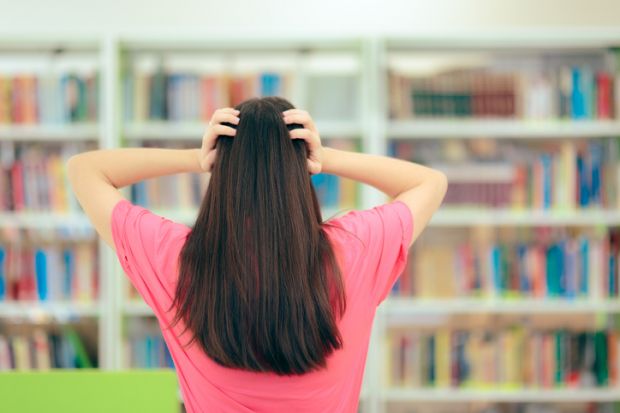Students from state schools are more than twice as likely to feel unprepared for starting university this autumn compared with private school leavers, a UK survey suggests.
Polling of more than 400 students by the Sutton Trust charity found that, overall, 58 per cent of respondents felt ready to start university, compared with 34 per cent who felt unprepared.
However, while 36 per cent of state school students reported feeling underprepared, the corresponding figure for private school leavers was just 17 per cent.
Responses to the Sutton Trust’s survey reflect concerns about disruption to learning, assessment and university admissions caused by the Covid-19 pandemic. While 67 per cent of students were satisfied with the support and advice they had received from their school on university admissions, 28 per cent were unsatisfied. Significantly, 29 per cent of state school leavers were dissatisfied, compared with 13 per cent of private school pupils.
Half of respondents felt that the impact of the pandemic on schools and universities would negatively affect their chance of getting on to their first-choice degree course – with 56 per cent of those applying to a Russell Group university concerned, compared with 45 per cent of those applying to other institutions, since the use of teacher-assessed grades instead of exams is expected to lead to increased competition for places in the most prestigious institutions.
Fifty-eight per cent of respondents were worried about their grades, with state school students more worried than private school pupils (58 per cent versus 51 per cent), and ethnic minority students significantly more likely to be worried than their white classmates (73 per cent versus 50 per cent).
The Sutton Trust, which aims to widen access to selective universities, said institutions should seek to make use of contextual admissions as widely as possible, taking account of students’ backgrounds and not just their grades.
The charity says universities will also have to provide additional support for students arriving at university this autumn, particularly those from disadvantaged upbringings.
“This year’s cohort of university applicants have faced almost two years of disrupted education. As we approach results day, it’s vital that poorer students are not disadvantaged by the greater impact of the pandemic on them,” said Sir Peter Lampl, the trust’s chair and founder.
Register to continue
Why register?
- Registration is free and only takes a moment
- Once registered, you can read 3 articles a month
- Sign up for our newsletter
Subscribe
Or subscribe for unlimited access to:
- Unlimited access to news, views, insights & reviews
- Digital editions
- Digital access to THE’s university and college rankings analysis
Already registered or a current subscriber?




